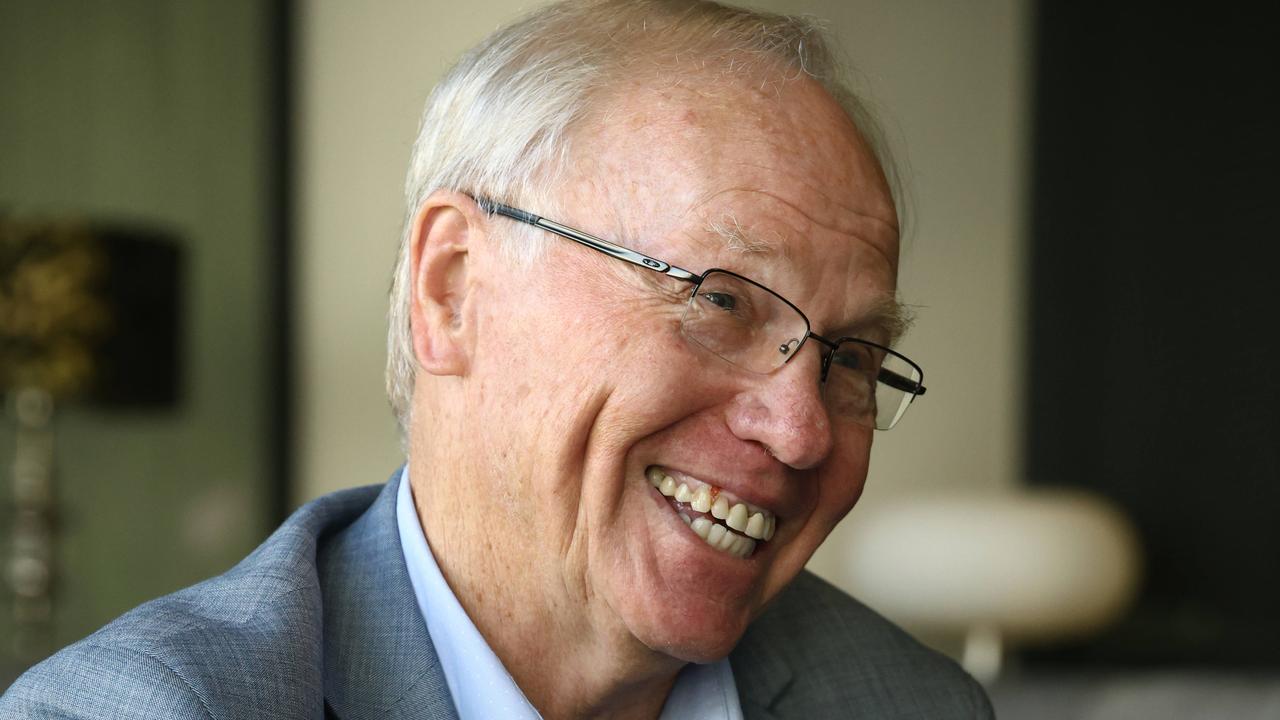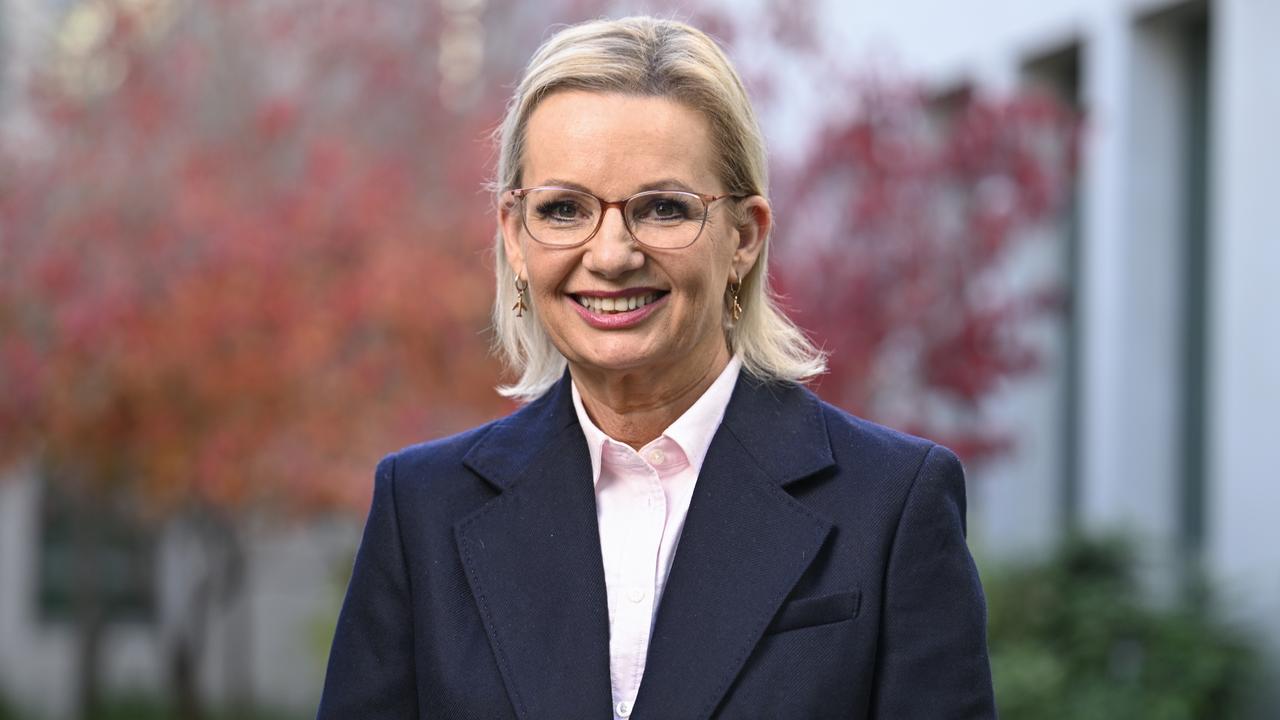Editorial: You will pay for Treasurer’s super change
Jim Chalmers’ tax on unrealised capital gains is a good idea in principle, but in practice is far from a sweet magic pudding, writes the editor.

Opinion
Don't miss out on the headlines from Opinion. Followed categories will be added to My News.
Treasurer Jim Chalmers clearly thinks he’s on a winner with his plan to impose extra taxes on superannuation accounts with more than $3m in them.
Not only will it raise an estimated $300m in the first year alone, rising to nearly $7bn annually within a decade but also, according to Mr Chalmers, it’s a “very modest change”, which will affect only 80,000 people, or about 0.5 per cent of the population.
Even better for the government, few of those hit with the higher tax are likely to be natural Labor voters – mainly farmers and family business owners with their assets in self-managed super funds, and wealthier people with clever accountants who have worked out legal ways to use the super rules to reduce taxes.
The thinking behind the proposal to double the current tax on super balances above $3m from 15 per cent to 30 per cent is hard to fault. The point of compulsory super when it was introduced in 1992 was “to preserve savings to deliver income for a dignified retirement”.
But these days, according to the government, growing numbers of taxpayers are “seeing the superannuation system as a general wealth management vehicle and developing large superannuation balances far in excess of what is required for retirement, including balances in the tens and hundreds of millions of dollars”.
The government’s solution is to declare superannuation savings of $3m as more than enough for someone to retire on gracefully and that anything more than that should be taxed at a higher rate.
It is a good idea in principle, but in practice Mr Chalmers’ proposal – which he’s aiming to turn into law as soon as possible this year after failing in the last term of government because of Senate opposition – is far from a sweet magic pudding, for several reasons.
The first is how the new tax will be calculated. A basic tenet of the current tax system is that you only pay tax on money you earn. But this new proposal will tax people on any unrealised gains in the year-on-year book value of the assets held in their super fund.
And if this value of those assets falls in the following year, the ATO won’t send you a refund but rather let you claim it as a credit in future years. This potentially has significant implications for farmers who might be asset rich but cash poor.
As the National Farmers’ Federation said in its submission to the Senate committee review of the proposed legislation, “This taxation of unrealised gains will mean some farmers will struggle to meet the annual tax bill on their land assets without selling the land itself.”
Second, the government isn’t planning to index the $3m cut-off to inflation, which means each year more and more people will have to pay the higher tax rate as the value of the assets held in their super fund continue to rise.
AMP’s deputy chief economist Diana Mousina has calculated that at least half of today’s workers now in their early twenties will have retirement saving of more than $3m by the time they reach their mid-60s.
Mr Chalmers dismisses such worries. He’s confident some future government will get around to upping the $3m cut-off, but not his apparently. He presumably needs the money.
Financial and market experts say there are plenty of other ways for the government to discourage savers from stashing too much money in their super accounts, such as increasing the tax on assets once they’re sold, or taxing withdrawals at a higher rate and various other more technical solutions.
For now, it’s an easy sell for Mr Chalmers – making sure “the rich” are paying their way. But there is a sting in its tail. And one day it will be felt.
JUSTICE AT LAST
It is a terrible shame that pedophile teacher David Justin Crisp was ever given a job at St Teresa’s College Abergowrie in the 1980s and 1990s, where he sexually abused at least one boy.
It is a terrible shame that he was rehired by the school after they became aware of allegations against him, and that Crisp managed to flee the country before police were able to arrest him.
After 30 years overseas he probably thought he’d got away with it. But his arrest and subsequent jailing after he returned to Queensland to visit his mother is so important for two reasons.
For the perpetrators, it shows that police will never stop chasing you. There is no statute of limitations for the sexual assault of children, and police, as well as victims and witnesses, have very long memories. We congratulate the police involved for never giving up.
For the victims, the arrest and jailing of someone like Crisp can be transformative. While we would hesitate to use the word “closure”, as victims of child sexual assault live with pain every day, this news shows that society has not forgotten them, and that Crisp did not get away with his terrible crimes.
It is justice delayed, but it’s justice nonetheless.
Responsibility for election comment is taken by Chris Jones, corner of Mayne Rd & Campbell St, Bowen Hills, Qld 4006. Printed and published by NEWSQUEENSLAND (ACN 009 661 778). Contact details here
More Coverage
Originally published as Editorial: You will pay for Treasurer’s super change




